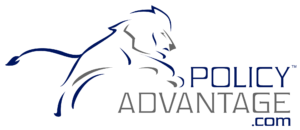Insurance Agency Transition from the “Attention Economy” to the “Intention Economy”
In today’s digital landscape, businesses are shifting from an “attention economy” to an “intention economy.” This transition marks a fundamental change in how companies engage with consumers, moving away from the traditional approach of vying for attention to focusing on user intent. For independent insurance agencies like PolicyAdvantage.com, this shift represents a unique opportunity to align services with the evolving needs of clients in a more personalized, value-driven way.
The History: From Attention to Intention
The “attention economy” concept emerged in the late 20th century when companies recognized that consumer attention was a scarce commodity. Brands began investing heavily in advertising, social media, and content marketing to capture as many eyeballs as possible. Platforms like Facebook, Google, and YouTube monetized attention by selling targeted ads, making data-driven advertising the norm.
However, as digital noise increased, consumers became overwhelmed with excessive advertisements, unsolicited marketing, and content saturation. This led to the rise of ad blockers, privacy concerns, and a growing demand for control over personal data.
In response, the “intention economy” began taking shape. Coined by Doc Searls in his book The Intention Economy: When Customers Take Charge, this model shifts power to consumers by allowing them to dictate their needs and preferences, rather than companies forcing messages upon them. Instead of fighting for attention, businesses now focus on aligning with consumer intent, providing value at the right moment, and building meaningful relationships.
How the Intention Economy Works
The intention economy operates on the principle that consumers, not businesses, drive the demand for products and services. Instead of passively consuming ads, customers express their intent—whether through search queries, product requests, or direct interactions with brands.
This shift is enabled by:
- AI and Data Analytics: Companies use advanced data insights to understand and predict consumer intent rather than just track behavior.
- Permission-Based Marketing: Instead of intrusive ads, businesses focus on providing relevant content and solutions when consumers are actively looking for them.
- Decentralization and Consumer Empowerment: Technologies like blockchain and decentralized identity give consumers more control over their data, limiting the power of traditional ad-driven platforms.
- Conversational Commerce: AI chatbots, voice search, and direct communication allow customers to interact with businesses on their own terms, based on real needs rather than targeted ads.
How Independent Insurance Agencies Can Thrive in the Intention Economy
For independent insurance agencies like PolicyAdvantage.com, this transition is an opportunity to redefine customer engagement and create a competitive edge in a crowded market. Here’s how:
- Optimize for Consumer Intent, Not Just Visibility. Instead of focusing on broad advertising campaigns, agencies should leverage search engine optimization (SEO) and content strategies tailored to consumer intent. This means creating educational resources, comparison tools, and guides that help customers make informed decisions when they are actively seeking insurance solutions.
- Personalization and Customer-Centric Services. In the intention economy, customers expect tailored solutions. Agencies can use AI-driven insights and CRM systems to personalize insurance offerings based on individual needs, whether it’s health, travel, or digital nomad insurance.
- Emphasize Transparency and Trust. Consumers now demand authenticity. Insurance agencies can differentiate themselves by offering clear, unbiased information, transparent pricing, and ethical data practices. Being a trusted advisor, rather than just a seller, builds long-term relationships.
- Leverage Direct and Permission-Based Marketing. Instead of relying on paid ads, agencies should invest in permission-based marketing strategies such as:
- Email campaigns tailored to existing clients’ needs.
- Engaging webinars and Q&A sessions to provide expert insights.
- AI-powered chatbots that assist customers in real time based on their inquiries.
- Enhance Consumer Empowerment Through Digital Tools. Agencies can develop digital tools that put control in the hands of consumers. Quote calculators, interactive coverage comparisons, and user-friendly policy management platforms make the insurance process seamless and consumer-driven.
Conclusion: The Future of Insurance in the Intention Economy
As the digital world moves away from the attention economy, independent insurance agencies must adapt by prioritizing consumer intent over aggressive marketing. By focusing on transparency, personalization, and customer empowerment, agencies like PolicyAdvantage.com can position themselves as trusted partners in their clients’ financial well-being.
The intention economy is not just about technology—it’s about respecting the consumer’s right to choose and engage on their own terms. Those who embrace this shift will thrive in a future where businesses succeed by aligning with genuine customer needs rather than competing for fleeting attention.


